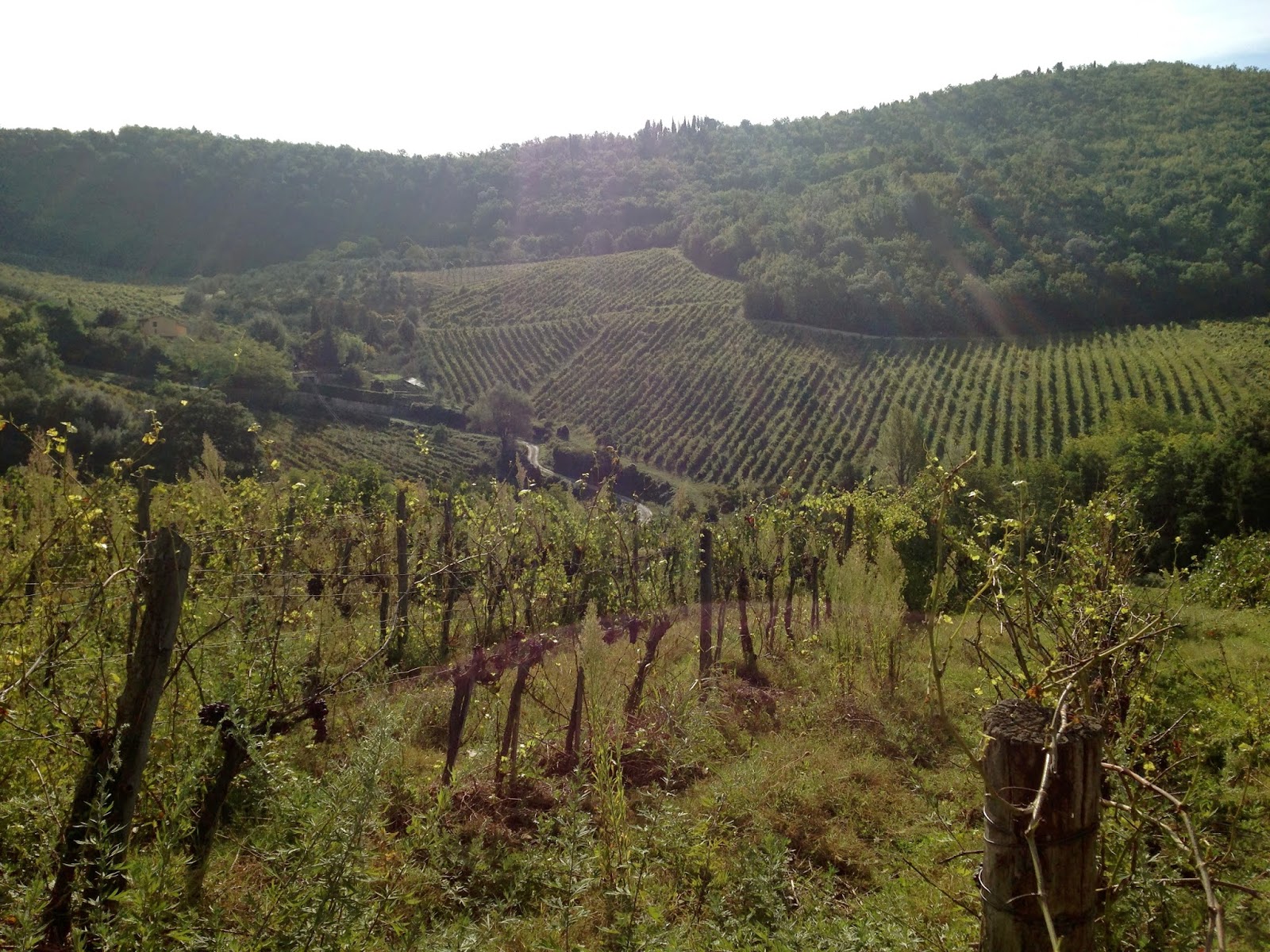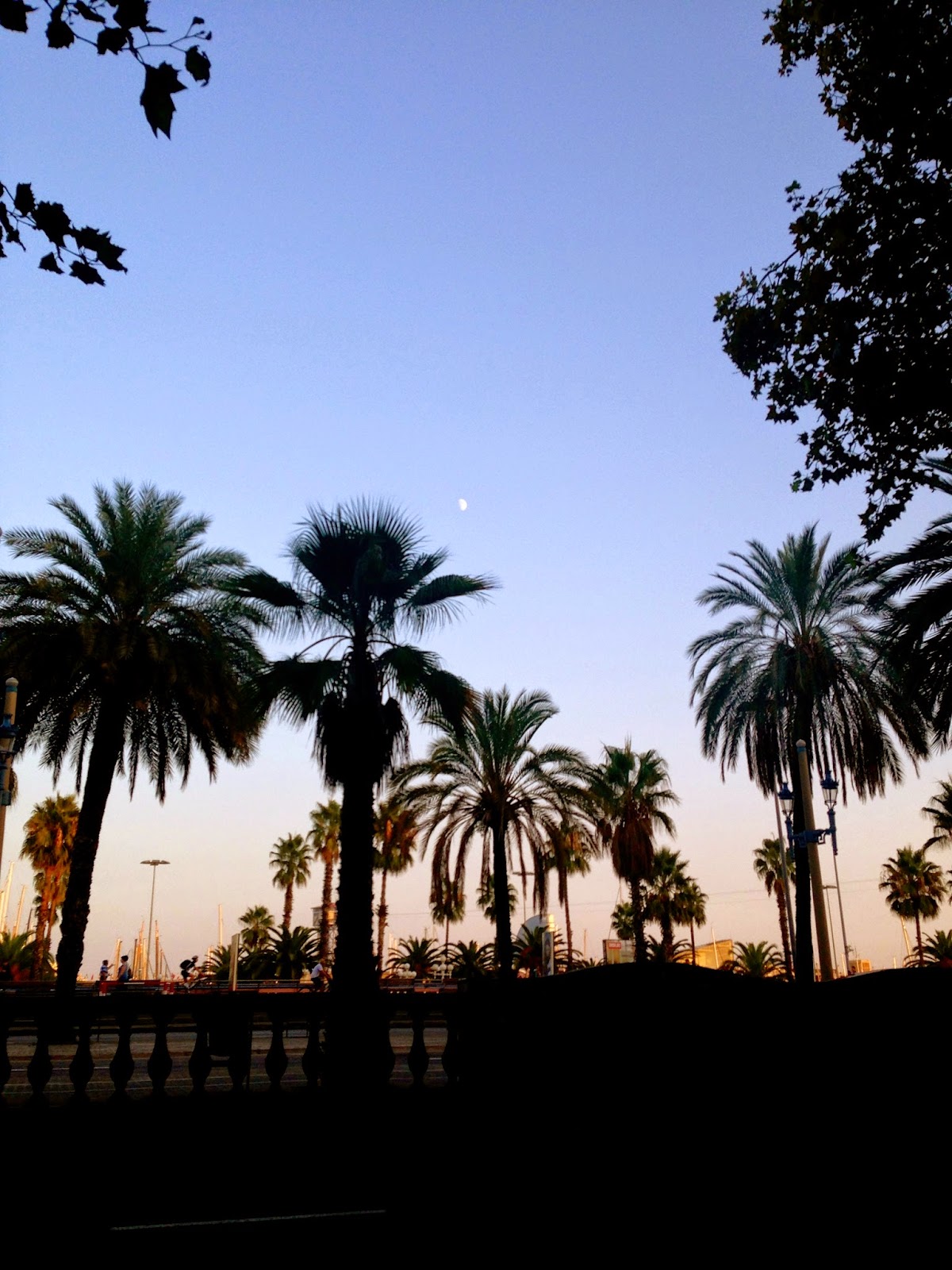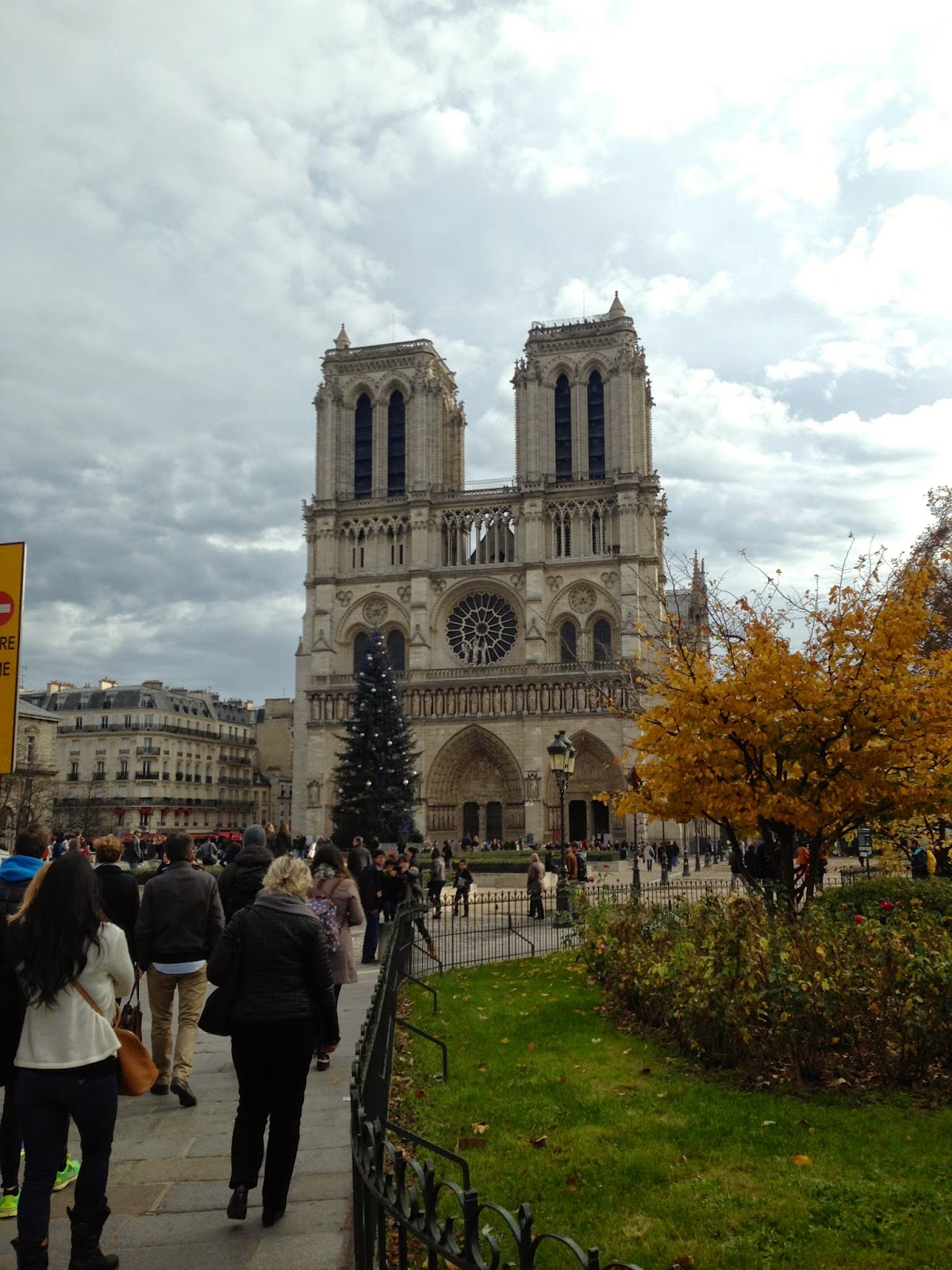"We shall not cease from exploration, and the end of all our exploring will be to arrive where we started and know the place for the first time." - T.S. Eliot.
^(First picture I took while looking out the window as we landed in Italy on August 25).
Ironically, a quote I chose at random at the beginning of the semester (literally by googling “travel quotes”) became precisely the quote I’d want to end my semester with. I think of the United Sates, of home, differently now than I did before coming abroad. I have come to realize that I do not have to cross the seas to fulfill my longing for travel and adventure.
That sort of desperate frenzy I spoke of in my first post, a frenzy I thought could only be fulfilled by travelling around Europe, I’ve realized is simply a longing for knowledge and exploration. I now have just as strong an urge to see the mountains in Colorado as I did to see the Alps. I haven’t seen the United States or attempted to understand cities in the United States with nearly as much energy and excitement as I have visiting cities in Europe. While travelling, so many Europeans said to me, “Oh, the United States! I love New York City. And California is incredible. Do you know Boston seems very European to me?” I’ve seen New York City, but not like they have. Not as a beautiful city of unlimited possibilities. I’ve never even been to California. And I’ve grown up my entire life half an hour away from Boston, but I haven’t tried to experience the city as I tried to experience cities in Europe, as an explorer and as a student. I don’t know the history of my own city in nearly the same way that I know the histories of Munich, Barcelona, Interlaken and, of course, Florence.
I am immensely excited for the possibility of everything I have yet to see at home. The new restaurants I’ve never thought of trying near my house because I think I “know” the good places; the people I assume I’ve met because I’ve met people “like” them. I truly believe I will know my home for the first time, just as T.S. Eliot says: as a place that can offer me so much if I explore it with the same fervor I had for my time abroad.
I think I learned, or at least contemplated, a few things while studying abroad. Here’s a general list:
I think studying abroad has shown me how important it is not to “waste” time. I think as long as time feels wasted, that’s a good sign. I had a few days where I would just do homework and watch TV and never leave my apartment; but I felt guilty for doing so, and overcompensated the next day by visiting a museum or going for a bike ride. I think you get into trouble when you stop recognising “wasted” time. It is so easy to fall into a routine, to fall into the comfort of an expected day. Even here, while abroad, I found myself returning to the same coffee shops everyday, studying in the same places, eating at the same restaurants. But I was lucky, because in the back of my head I had this quiet voice saying, “don’t miss out on anything. See everything. Experience everything.” Of course, I only heard this voice because of the brevity of my time in Florence.
I don’t think this voice should only exist for certain intervals of a person’s life. I think if I take anything away from this trip, it’s that I shouldn’t stop following paths that lead me to new experiences. I shouldn’t stop searching, every day, for those things that aren’t conventional or expected or comforting. Here’s an example: I love Starbucks. But it wasn’t until I stepped away from that “comforting” coffee shop (I didn’t have a choice – they don’t have Starbucks in Florence) that I found a few other small local spots here in Florence – and the thing is, I can’t remember any other time I knew the barista by name, or the last time he knew me by mine. And there is nothing better than eating their croissants right out of the oven, or getting them half-off because they know me.
Another thing I’ve learned from study abroad: thoughts are habits. Every day, we have to consciously choose what we think about and how. And that’s a great amount of control. I want to fall into the habit of thinking in the present. I don't want to get stuck in the habit of worrying. One of my best friend’s here has a tattoo that says, “He who hesitates is lost.” I’ve also heard the phrase “presence is strength,” a lot in the past few months. And here’s what I think about when I hear these phrases:
A lot of people I met on my travels – kids my age – were so concerned with anything they could think of to be worried about. They would stress about schoolwork, and when there was no schoolwork, they would stress about schoolwork as-yet-undetermined; when they couldn’t think of a single bit of schoolwork, they’d begin worrying about the state of their apartment and how many dishes were stacking up, or how they didn’t have enough sweaters and needed to buy more, or when would they have time to go to an ATM, and speaking of money, they didn’t have any, and how would they even get a job after graduation, and would their lives turn out okay?
I think that’s why being present seems like such a crucial concept to me now. Here we are, for a fleeting moment, in a place that can change our lives if we let it. There is so much to learn. There is so much to gain. And it’s the only chance we have at this moment in this place with these people. There were times when I felt like these kids were falling back on these worries as a sort of safety – something to say just for the sake of speaking, or maybe as a way to feel like they had control?
Or more likely, they just didn’t notice. That’s what I mean when I say thoughts are habits. Some of these kids are in the habit of worrying. They are in the habit of complaining and stressing. And they are in the habit of missing out.
One of the best ways I knew to stay present, to stay focused, was by learning. And most of this learning took place outside the classroom. I don’t just mean learning travel survival skills and universal truths. Actually, I learned a lot of facts outside the classroom from people who were far more passionate about their culture than my teachers (often) were. I learned about art and history; I heard some fascinating stories about how things came to be, stories that stacked together in order to create a picture of the history of a city far more vivid than what I could find in a textbook. For instance: remember the man who worked at the wine tasting place my friend and I went to? Slowly and cautiously, he began unfolding pieces of his life for us. I learned more about wine from him than I did in three months of a Food and Culture class. Because yes, I can only learn about the DOCG label or the science of how grapes are harvested in the classroom, but I couldn’t tell you a single thing about why I should care about any of it until I talked to this man. He was lit on fire by it. It was his passion, and in turn, for a moment, it was ours. And then on our drive back, our tour guide told us that legend about how the Florence-Siena lines came to be, and yes, it might have been completely inaccurate. Maybe I could have gotten firmer facts from a class. But what couldn’t be mistaken was the pride he had for Florence. He shared this legend with us because he was proud of where he’d come from. For an instant, we were able to connect on that.
People have a lot to offer you, I am learning.
Another thing these passionate people taught me is that you must look for things and ideas that move you. That can even change your perspective on life.
 When I read Eat, Pray, Love, this summer, something Elizabeth Gilbert said stuck with me and still resonates. She spent some time in India on a religious mission – she was in pursuit of a God that she could recognize and know. She was given this piece of advice: “Look for God like a man with his head on fire looks for water.” When I read this, I didn’t think it just applied to religion. I think it applies to the discoveries we can make in our lives and the way in which we do it. This semester I tried my hardest to look for energetic people and adventurous places in the same frantic way a man on fire would look for water – like he was going crazy without it. But there’s also something to be said about not looking for it, about realizing that some of it can be manifested at anytime and anywhere.
When I read Eat, Pray, Love, this summer, something Elizabeth Gilbert said stuck with me and still resonates. She spent some time in India on a religious mission – she was in pursuit of a God that she could recognize and know. She was given this piece of advice: “Look for God like a man with his head on fire looks for water.” When I read this, I didn’t think it just applied to religion. I think it applies to the discoveries we can make in our lives and the way in which we do it. This semester I tried my hardest to look for energetic people and adventurous places in the same frantic way a man on fire would look for water – like he was going crazy without it. But there’s also something to be said about not looking for it, about realizing that some of it can be manifested at anytime and anywhere.
For instance, the other day I went outside and kept my head down; I had my earphones in. I was thinking about homework and barely paying attention to where I was going. Then I got to this shop where I was looking for Christmas gifts. Of course, when I left the shop I was elated. I’d found a lot of great gifts and I’d had fun – the woman in the shop had helped me in the same way a friend might’ve helped me. So when I walked out of this shop and into the leather market, I started smiling and saying “ciao” to the men and women who had bag stands or jacket stands or scarf stands. I hadn’t even noticed these men and women before. And, in turn, they said hi back. But it was more than that. It was this feeling that we were able to feed off each other’s moods. My good mood could lift theirs, and vice versa. They were so eager to respond in kind when I smiled and said, “Hi, how are you?” They would say, “ciao, bella, come stai?” with this grand smile on their faces. And I would say, “bene” (and that would be about all I could say before we switched to English). But there was energy in the space that hadn’t been there before. The city can come alive when you let it, and in turn, it can bring you to life.
Another thing. Most of the people I know personally in this city are American students, and we are very blessed. We come for a great country. I miss America. I miss the passion and the drive most Americans have for work, for getting things done, for changing things. I think our country was founded on the concept of change, and I now understand the downside of these “leisurely afternoons of pleasure” spent in Italy: there are many Italian’s I’ve met who are frustrated that there aren’t many exciting work opportunities for them here. They don’t have the same drive to change their lives because no one around them is pushing them. One man told me all he wants to do is go to New York City, but he’s 30-years-old and thinks, “it is too late for me now.” I don’t think he could be more wrong, but I also think this is the result of a mindset in Italy, the mindset that work comes second to family and leisure.
Elizabeth Gilbert said, “Happiness is the consequence of personal effort. You fight for it, strive for it, insist upon it, and sometimes even travel around the world looking for it. You have to participate relentlessly in the manifestations of your own blessings.” I think this is brilliant. I think a lot of people forget the effort you have to put in to fight against those human instincts to not be happy, to be worried or afraid. But I think if you insist hard enough, like a man on fire might insist for water, you can find it anywhere.
Reading back on my first post and thinking about how I used to think, I realize that I was wrong about a few things. Europe definitely does not hold all the answers. America holds plenty of them. But if you start exploring, if you ask people to share their thoughts and share with them your own, if you read and travel and test theories and question everything, then you can start to get somewhere. Mainly, I found that people are truly the ones who hold the answers. Every time they told me something I hadn’t heard before or hadn’t heard from their perspective, a part of me saw the world differently.
 I also don’t think I am different like I thought I’d be. I think I know more. I think my perspective has expanded. But I already know who I am. And if I’m going to improve myself, I only need to discover more things I find joy in. I don’t think I needed study abroad to “discover myself.” I think I needed study abroad to discover the world – or, at least, a grander part of it.
I also don’t think I am different like I thought I’d be. I think I know more. I think my perspective has expanded. But I already know who I am. And if I’m going to improve myself, I only need to discover more things I find joy in. I don’t think I needed study abroad to “discover myself.” I think I needed study abroad to discover the world – or, at least, a grander part of it.The world is an incredibly beautiful place if we allow ourselves to see it.

^Venice
^Tuscan countryside
^Barcelona
^Chianti Wine Tour - Tuscan countryside
^Florence in the fog






































